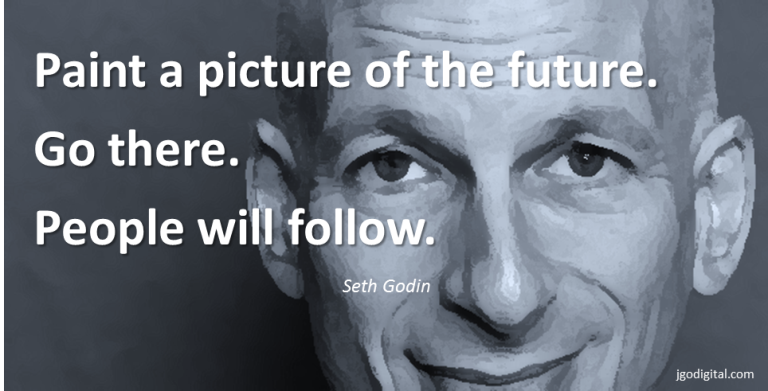The rise of social media and content marketing has inspired renewed interest in amassing greater social influence. And with it, a loyal following.
The Holy Grail of social networking is to be viewed as an authoritative, influential expert by your followers. This is not unique to the online world.
Influence has always been the entry point to building a relationship – and a group of loyal followers – whether it’s on the Web or in real life.
But which comes first, your authority or your following?
The irony is that today the agenda is set by your audience. They grant you authority based on how well you answer their most important questions and serve their needs. Until that happens you have no influence and no following.
My friend Ray learned this the hard way.
Ray’s lesson in authority and influence
“I want your job,” Ray told me bluntly. “I want to be in charge of this team.”
He was working for me at the time.
I was meeting with each of my team members to set individual development goals. I’m sure others desired to be my replacement one day, but Ray was the only one to come right out and say it.
“I won’t always be in this role,” I said. “Let’s make a development plan that gets you ready to step in when I leave.”
And so we did.
Over the next two years, Ray led several big initiatives designed to hone his team-building, influence and leadership skills. His performance was stellar.
The day came when I got a new assignment in a new department. It was Ray’s moment of opportunity.
My boss was aware of Ray’s career goal and his development plan. Ray proved himself ready for promotion and he got it.
But things did not go well.
I started hearing grumbling from team members about Ray’s leadership.
 They weren’t getting a clear picture of priorities from him. The decisiveness he had demonstrated in previous projects disappeared. Now everything was a priority. And when everything is a priority, nothing is a priority.
They weren’t getting a clear picture of priorities from him. The decisiveness he had demonstrated in previous projects disappeared. Now everything was a priority. And when everything is a priority, nothing is a priority.
He lost trust. Then it got worse.
Ray set his work schedule to end his day promptly at [3:00]. This caused more discord on the team. They already felt he wasn’t providing the vision for accomplishing their goals. Now he was limiting their access to him.
His actions gave the impression that once he had assumed authority, he didn’t have to do anything more to cultivate it. He started to coast. Team members quit looking to him for direction, because he wasn’t offering any.
With no following he was reduced to managing activity, rather than influencing it.
Four laws of influence that create loyal followers
Ray’s story happens every day in businesses everywhere. A common denominator is trying to lead from behind the herd without earned authority. The herd offers a great analogy for this.
If you’ve seen the managed chaos of a cattle drive, you notice the cowboys push the herd from behind. Great effort is spent to keep the herd from separating and to push it toward their destination. Contrast this with a shepherd.
The sheep hear the shepherd’s voice, and as he goes before them, they follow.
Why do they follow, and why should someone follow you? Here are four things you must do to earn authority, boost your influence and create a loyal following.
1. Build relationships. People want to follow those they know and who know them. Your ability to develop, cultivate and conduct relationships is more important to followers than your professional knowledge or skills. Mutual familiarity builds a relationship that enables influence with followers.
2. Earn trust. People want to follow those who have open, transparent communication with them. Hidden agendas or split loyalties – real or perceived – will chip away at trust and ruin your ability to influence followers.
3. Act consistently. People want to follow those whose actions are consistent with their words. When the vision remains constant, they have higher trust and confidence in you.
4. Be responsible. People want to follow those who take ownership of their words and actions. When they see you model consistent and excellent behaviors, values, attitudes and work ethic, they willingly follow.
The set up for social success
Ray only lasted a year in his new role. When the time came to reorganize the group, senior management no longer saw the value of having a manager at all. Ray didn’t lose his job. He was demoted to his former position. He had his chance to build a following and he blew it.
Ray’s story has as much to do with building a following and being influential on social media as in real life leadership situations. A true leader is influential regardless of title or status. On social media, everyone is equal until the herd decides to follow. That means everyone has the potential to influence.
The takeaway from Ray’s misadventure is that you can’t push your way into influencing the attitudes or behavior of others. Your authority must be earned over time. The four laws of influence take time and effort. When you work consistently to build relationships, people will hear your voice and follow. That is the set up for social influence and social success.












Speak Your Mind